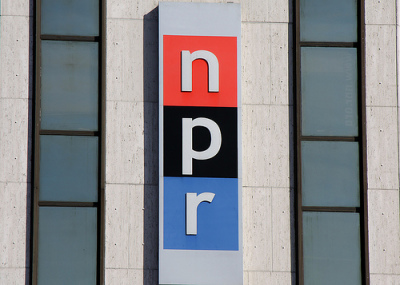Former NPR CEO Spends Time With Evangelicals, Republicans; Discovers Media Bias

Ken Stern, the former CEO of National Public Radio, spent a year venturing "out from my overwhelmingly Democratic neighborhood" by meeting Republicans and attending evangelical church services, which led him to his discovery of "an America far different from the one depicted in the press."
"This may seem like an unusual admission from someone who once ran NPR, but it is borne of recent experience," wrote Stern, now president of Palisades Media Ventures, in an article published in New York Post.
"When you are liberal, and everyone else around you is as well, it is easy to fall into groupthink on what stories are important, what sources are legitimate and what the narrative of the day will be," he explained, noting that most reporters and editors are liberal.
With red and blue America "drifting irrevocably apart," he decided to immerse himself in conservative culture. "I embedded myself with the other side" for an entire year, "standing in pit row at a NASCAR race, hanging out at Tea Party meetings and sitting in on Steve Bannon's radio show," he wrote.
Stern spent many Sundays in evangelical churches and even "hung out with 15,000 evangelical youth at the Urbana conference," which is one of the largest student missions conferences in the world.
"At Urbana, I met dozens of people who were dedicating their lives to the mission, spreading the good news of Jesus, of course, but doing so through a life of charity and compassion for others: staffing remote hospitals, building homes for the homeless ..."
Stern also tried his hand at pig hunting with a family from Georgia. "None of my new hunting partners fit the lazy caricature of the angry NRA member. Rather, they saw guns as both a shared sport and as a necessary means to protect their families during uncertain times," he stated, and admitted that "media is obsessed with the gun-control side and gives only scant, mostly negative, recognition to the gun-rights sides."
The author expressed concern over the fact that "more than 65 percent of voters think there is a lot of fake news in the mainstream media and that our major media institutions are seen as creating, not combatting, our growing partisan divide."
"Some of this loss of reputation stems from effective demagoguery from the right and the left, as well as from our demagogue-in-chief, but the attacks wouldn't be so successful if our media institutions hadn't failed us as well," he said.
Stern suggested that media can't cover America "from the Acela corridor," and should, therefore, "get out and be part of the conversations that take place in churches and community centers and town halls."
He concluded that the current situation "in an odd way works for Trump, who gets to rile his base," and for the media, "which has grown an audience on the back of Washington dysfunction."
But in the end, "they are both short-term winners," he warned. "It is the public that is the long-term loser."




























